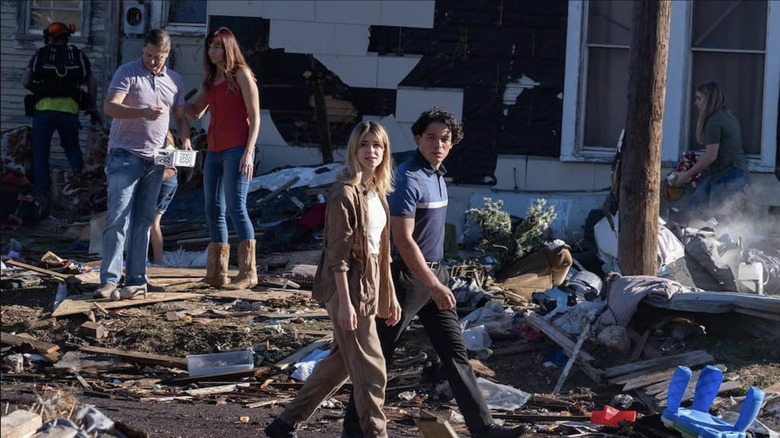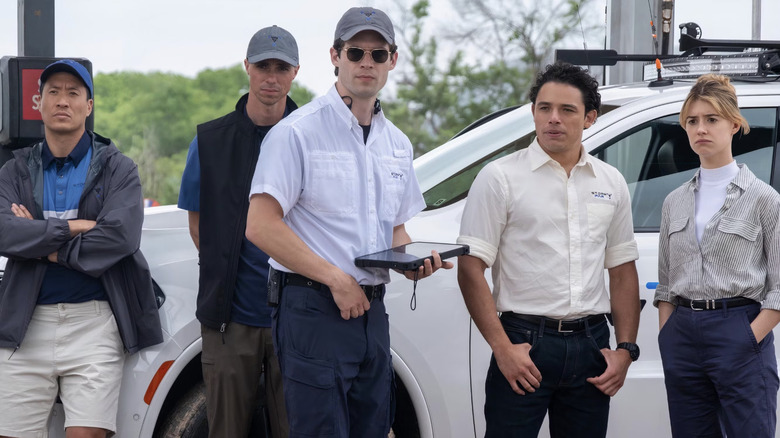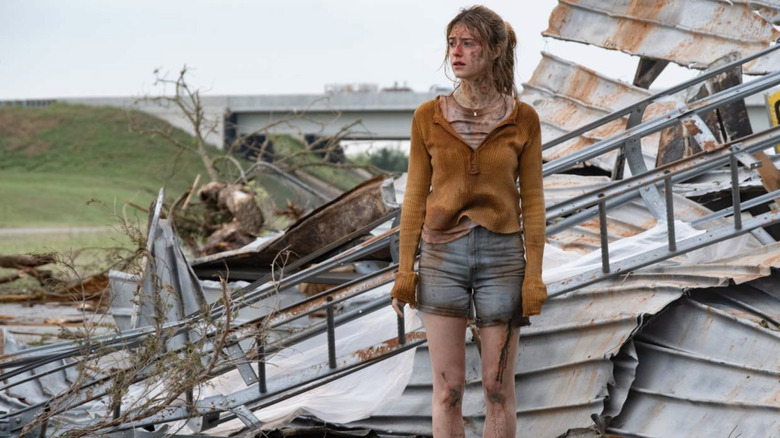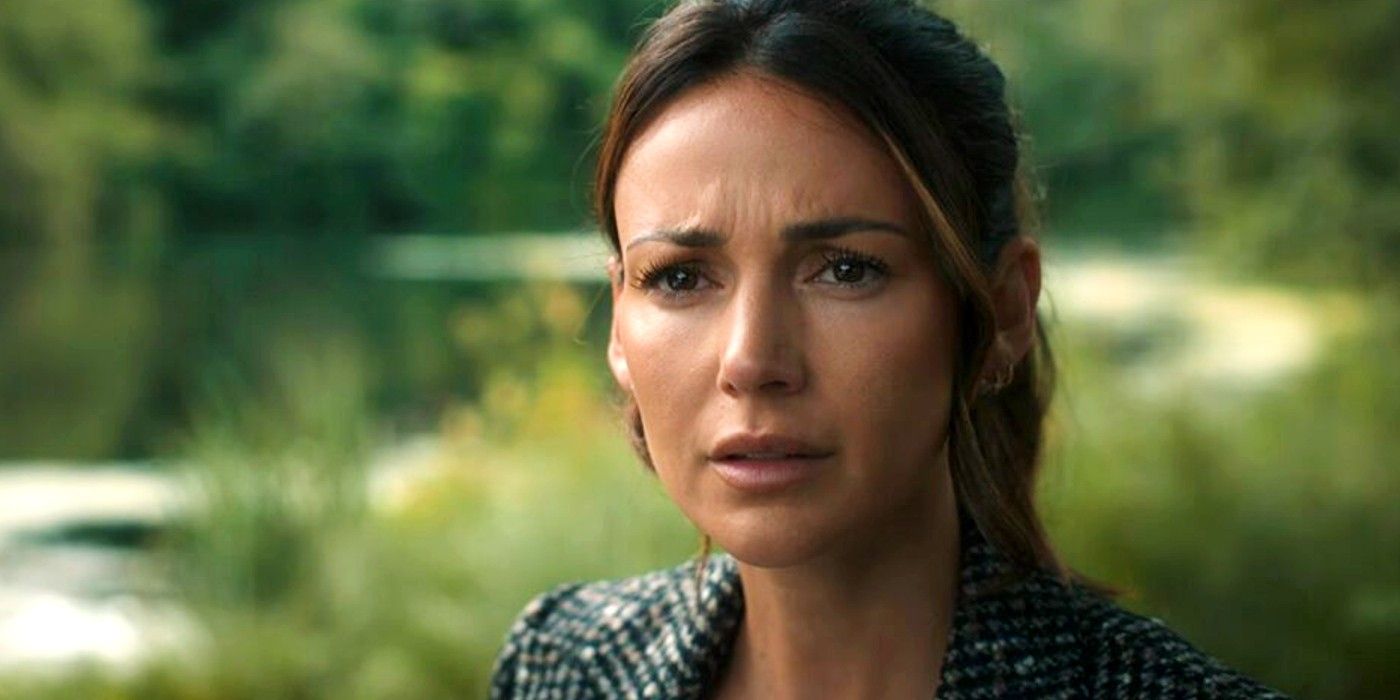
Universal Pictures
Two nights ago, my wife and I snuffed out the dozen scattered tea lights that had been illuminating our apartment while electricians worked around the clock to restore the power, even as the wind uprooted century-old trees around them. Within a few hours, we were stuffing our go-bags into the trunk, overflowing with the six Ps (people/pets, papers/phone numbers/documents, prescriptions, pictures, personal tech, and plastic/credit cards) to evacuate to safety. I'm fortunate that my apartment building is still standing, but the last update I received was from a friend saying, "It looks like 'Silent Hill' out here." I need to sleep, but I haven't slept, too beguiled by the 24-hour news reporting of the devastating fires ravaging Los Angeles County, and watching in horror with eyes too dry from the smoke suffocating out any semblance of fresh air.
The annihilation is unimaginable. Tabloid publications plaster before and after photos of multi-million dollar celebrity mansions leveled into rubble. Meanwhile, local news stations interview crying families from working-class backgrounds who pick through the debris of family homes, and drones capture the sight of mobile home estates leveled into empty lots. "You can replace things, you can't replace people" is a platitude soaked in toxic positivity, lobbied by people who have never known the feeling of losing everything. We will spend years debating "who is to blame," while mutual aid foundations desperately try to help the thousands of people who are now without a home, adding to the already catastrophic number of unhoused civilians.
"We will rebuild," has been repeated a lot through gritted teeth and deep sighs that feel like a backdraft, but rebuilding takes time, supplies, labor, and money. Unfortunately, as we inch closer toward an oligarchy, there are undoubtedly people watching the news of obliteration not with empathy or horror, but with dollar signs in their eyes. I always turn to movies during difficult times (see also: my experiences watching the "Inside Out" movies), but it's hard when real life looks like the emotional cutaway of something made by Roland Emmerich.
It's especially hard in the wake of "Twisters," which highlights a predatory villain so despicable it should radicalize anyone watching at home.
Companies like Storm Par from Twisters are irredeemable

Universal Pictures
When we meet Storm Par in "Twisters," they're a highly organized team of storm chasers who receive funding through big-named investors, including the wealthy Marshall Riggs. The storm chasers use the funding to continue their work analyzing tornadoes in the hopes of eventually finding a way to slow or weaken the storms, but their financial backers are not funding the team because they actually give a flying rat's ass about protecting people in tornado alley. In reality, it's quite the contrary.
Investors like Riggs provide funding in exchange for the names of the people whose homes were destroyed by tornadoes ... so he can offer them cash for their land, often for less than what it's worth. They are preying on and exploiting emotionally compromised and vulnerable communities who have lost everything because these capitalist pigs care more about profits than helping people. While we were too busy debating whether or not Kate (Daisy Edgar-Jones) and Tyler (Glen Powell) should have kissed, the true debate was regarding Storm Par's financial backing and how capitalism has invaded and corrupted every imaginable industry.
Javi (Anthony Ramos) is unquestionably conflicted about where Storm Par's funding comes from, but it's evident that he's made this deal with the devil because as his business partner Scott (David Corenswet) has rightfully learned, it's one of the only ways they can afford to continue their research. Javi is trying to help people with his tornado research, and people like Riggs know that without their investment, his work won't be able to continue. Javi is yet another vulnerable person acting against his own interests because our world has required those without wealth to forever be at the mercy of those who have it, while Scott has been corrupted by their influence, and is now the fictional storm chaser version of people living in poverty defending the reputations of tech billionaires like Elon Musk and Mark Zuckerberg.
Searching for riches in the rubble is deplorable behavior

Universal Pictures
People like Marshall Riggs are unfortunately very real, and even as the fires continue to rage on, they're rapidly scuttering out of the woodwork like the aggressive monsters they are. People have already taken to social media to talk about being offered 15% or less of their home's worth for the land where it previously sat. Weirdo "get rich quick" grifters are also encouraging people to "invest" in land in the Pacific Palisades area "while it's still cheap." At the time of publication, the fire has spread to over 17,000 acres and is at zero percent containment. The fire isn't even out and these Storm Par-esque creeps are already plotting their ascension as the wealthiest of the wasteland.
And as is the case in "Twisters," their profit margins are completely short-cited. Sure, they can buy cheap land after tornadoes or fires lay waste to communities, but if the tornadoes or fires never improve, whatever profits these jagaloons make from selling properties built on their cheaply purchased lands will eventually have to be used to pay for rebuilding again when Mother Nature once more proves that she's not one to be screwed with. We're less than six months from the time "Twisters" arrived in theaters, and this major plot point is unfortunately feeling a little too real for comfort. It's time to be like Javi, Kate, and the Tornado Wranglers led by Tyler and finally leave these opportunistic villains in the dirt.
For information on how to actually help those impacted by the SoCal wildfires, you can find a list of resources here.









 English (US) ·
English (US) ·